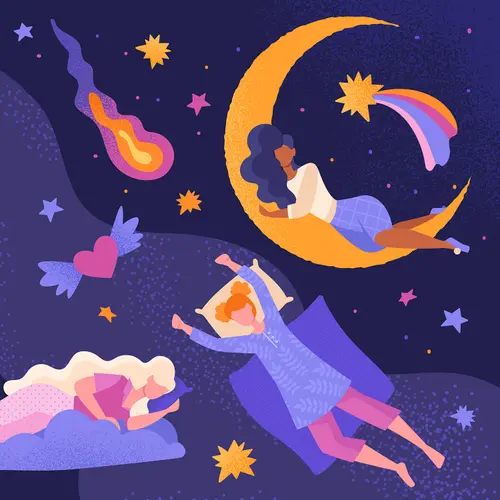How Much Sleep Do I Need?
It depends, but adults generally need 7-8 hours per night. Kids and teens need more.
The exact amount varies from person to person, based on many things, including your age.
If you didn’t sleep well last night, you may need more to make up for it. As you get older, your sleep patterns may change, with lighter and shorter periods of shut-eye.
The best way to know if you get enough rest is to notice how you feel during the day. If you’re drowsy or want to nap -- or even fall asleep while the sun's out -- you probably need more Zzz's at night.
What Is a Sleep Disorder?
Everyone has a rocky night every now and then. That can happen if you’re under stress, for instance.
But if it happens often, ask your doctor to help you figure out what’s going on.
You might just need to work on your sleep habits. Aim to go to bed at the same time each night, relax before you try to nod off, and don't drink or eat a heavy meal before bed. Lifestyle changes like that are probably the first thing to try.
Your doctor can make sure your shut-eye problems aren’t due to a health issue. They may recommend that you have a sleep study, either at home or in a sleep lab, to see what’s going on.
What Are the Treatments?
If your doctor tells you that you have a sleep disorder, the treatment depends on what the disorder is and how severe it is.
First, you’ll probably make lifestyle changes. You'll want to improve your sleep habits, avoid caffeine and alcohol, manage your stress, and get more exercise.
If you have sleep apnea, your doctor may recommend a CPAP machine to help keep your breathing regular while you snooze. Losing extra weight also helps.
If you take sleeping pills that don’t need a prescription, you should tell your doctor if you use them for more than 2 weeks. Be sure to follow the instructions on the label.
Do Naps Help?
They feel good, but don’t nap too long or too close to bedtime, or it'll be harder to sleep at night.
Who's at Risk for Sleep Disorders?
Anyone can get one, but they're more likely among:
- Middle-aged women, who are likelier to get insomnia
- Overweight, middle-aged men, who have a greater chance of getting sleep apnea
Kids and teens are more likely to sleepwalk than other people.
Does Alcohol Help?
No. While it may relax you and help you nod off, it also disrupts the normal sleep cycle. You’ll spend less time in REM sleep (the deepest slumber), and it might give you nightmares or make you sweat at night.
